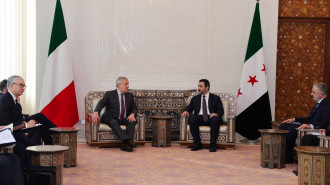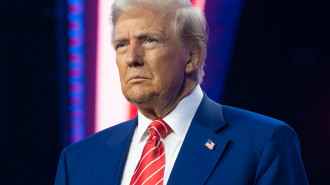Breadcrumb
Human Rights Council drops Russia amid Syria warcrimes outcry
The 193-member assembly elected 14 members to 47-nation council, the UN's main body charged with promoting and protecting human rights.
Russia, which received 112 votes, lost its regional seat to Hungary, with 144 votes, and Croatia with 114 votes.
Russia's UN Ambassador Vitaly Churkin played down the importance of the loss.
"It was a very close vote and very good countries competing, Croatia, Hungary. They are fortunate because of their size, they are not exposed to the winds of international diplomacy. Russia is very exposed. We've been on council a number of years, I'm sure next time we'll get in," he said.
Iraq, Saudi Arabia, Egypt, China, Brazil, Rwanda, Hungary, Cuba, South Africa, Japan, Tunisia, the US and UK all won seats on the council. Guatemala was the only country running for a seat beside Russia to not be elected.
Human rights groups had called for countries to reject the candidacies of Russia and Saudi Arabia, which has been accused of indiscriminate attacks against civilians in Yemen. Saudi Arabia's election, however, was a foregone conclusion since it was running unopposed for its regional seat.
"In rejecting Russia's bid for re-election to the Human Rights Council, UN member states have sent a strong message to the Kremlin about its support for a regime that has perpetrated so much atrocity in Syria," said Louis Charbonneau, UN director at Human Rights Watch.
"Next year, UN member states should make sure that all regional groups have real competition so no one is guaranteed victory."
Saudi Arabia is back
Saudi Arabia, which was re-elected with 152 votes, was almost guaranteed to retain its seat as part of a clean slate of four countries vying for four regional seats.
The kingdom secured its seat despite an outcry over the military campaign waged by the Saudi-led coalition in Yemen, where has left nearly 7,000 dead, mostly civilians.
The coalition has carried out airstrikes in Yemen that have hit civilian targets such as a community hall in Sanaa that was recently destroyed during a funeral, killing more than 140 people.
Earlier this week Human Rights Watch warned that a return for Saudi Arabia on the council risked weakening the assembly's work to hold abusers to account.
"The UN Human Rights Council's ability to successfully expose and hold violators to account is under threat because a number of countries use it to thwart attempts to expose their own crimes and abuses," Charbonneau said.
"Electing council members that are truly committed to improving human rights is the responsibility of each and every UN member country, and Saudi Arabia and Russia don't honor the ideals that underpin the UN Human Rights Council."
Created in 2006, the rights council monitors violations and in particular set up a groundbreaking commission of inquiry on North Korea that led to calls for war crimes prosecutions of the Pyongyang regime.
The council this month asked the commission of inquiry for Syria to carry out a special investigation of rights abuses in Aleppo.
Agencies contributed to this report.






![Anthony Blinken speech [Getty] Anthony Blinken speech [Getty]](/sites/default/files/styles/image_684x385/public/media/images/6263436E-8ACD-4D3C-9055-25A7BE79DD5A.jpg?h=d1cb525d&itok=fLHmHCRG)
 Follow the Middle East's top stories in English at The New Arab on Google News
Follow the Middle East's top stories in English at The New Arab on Google News
![Many are vowing to boycott a film starring Amy Schumer, set to release next month [Getty]](/sites/default/files/styles/image_330x185/public/2152810030.jpeg?h=a5f2f23a&itok=wMRYjbOK)

